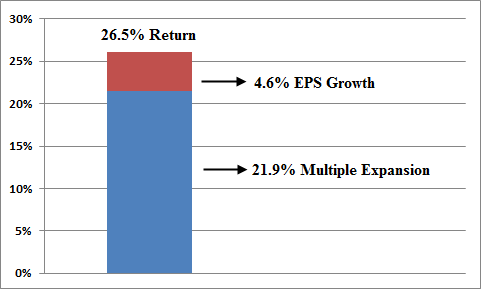There were many big developments in 2013, but none stood out quite like the impact of behavioral finance. A few things made this the year of behavioral finance:
- First, we saw Robert Shiller win the Nobel Prize in economics. Behavioral finance is still an emerging concept to some degree and very earlier in its overall development. But the work from Shiller and others is finally being recognized as an important development in understanding the financial world around us. 2013 was the year where behavioral finance, as academic work, was rewarded with the biggest prize of them all.
- Perhaps more importantly, it became obvious to market participants that animal spirits really are the primary driving force behind price action. And it became abundantly clear that this price action doesn’t always necessarily make sense based on what’s actually happening. For instance, in 2013 we saw falling inflation, declining rates of appreciating profits and stagnant economic growth. But the S&P 500 boomed 32%. What drove the market action? It was largely multiple expansion guided by the animal spirits and the desire to own stocks. Whether this was rational or not doesn’t matter. It was driven by the behavior of market participants who voted with their wallets that they want to own a greater proportion of stocks.
No matter how you cut, 2013 was a big step forward for behavioral finance.
Mr. Roche is the Founder and Chief Investment Officer of Discipline Funds.Discipline Funds is a low fee financial advisory firm with a focus on helping people be more disciplined with their finances.
He is also the author of Pragmatic Capitalism: What Every Investor Needs to Understand About Money and Finance, Understanding the Modern Monetary System and Understanding Modern Portfolio Construction.


Comments are closed.